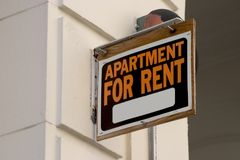If you own a property in Spain, or you are thinking about acquiring one with the aim of designating it for Holiday Accommodation, you may have already experienced or read about the administrative and legal obstacles that the Spanish regulations in force establish for this type of rental.
The regulation and control of this type of rental (Holiday Rental) is delegated to the Regional Governments and City Councils corresponding to the area in which a property is located. The aforementioned authorities are increasingly establishing more obstacles or requirements, thus making it ever more difficult to carry out such rental activity. In addition to this, the Associations of Property Owners now have the authority to restrict (not to prohibit, as often mistakenly considered) Holiday Rental activity in the urbanisation in which a given property is located.

In view of this situation, property owners or future investors should be aware that the Spanish regulations currently in force, allow other types of Property Leases governed by Urban Lease Law. This Law is applicable in the whole of Spain, and is not limited to, or conditioned by, Local Authorities.
We can break down these types of leases into two categories, Property Lease Intended as a Main Residence, and Seasonal Property Lease (the latter also referred to as a Lease intended for use other than a Main Residence).
A Lease contract for a Property Intended as a Main Residence, is a contract applicable to an urban property; fit for human habitation; with the primary purpose of meeting the tenant’s permanent requirements for a main residence. The minimum term of contract for this kind of lease is of five years.
In the case of Seasonal Property Leases the term of contract is not defined by Law. In theory, the term of a seasonal property lease could be for example, one month, several months, a year, a year and a half…
What truly defines a Seasonal Property Lease is the purpose or reason for which the tenant requires the dwelling for any given period. The parties should therefore establish the term of the seasonal contract accordingly.
In order to draft a Seasonal Lease Contract correctly, what is most important is that there are true grounds to justify this type of contract, and that they are expressly stipulated in the contract.
Here are some examples that would justify a Seasonal Lease contract:
– The need for temporary accommodation for the duration of renovation work in the tenant’s main place of residence
– The tenant requiring temporary professional relocation (during the summer season, winter season etc.)
– The tenant requiring temporary accommodation during the holidays
– The tenant requiring temporary relocation for study purposes
On the other hand, in the case of Holiday Rentals however, the landlord rents the property to third parties, furnished and equipped in a suitable condition for immediate use. Furthermore, the property is commercialised or advertised via tourism channels.
The requirements established in order to gain permission for commercialisation of Holiday Rental Properties are specific and distinct from those applicable to Seasonal Leases. That is to say, that in contrast to Seasonal Leases for which any type of dwelling is deemed suitable, in the case of Holiday Rental Properties however, not all dwellings are eligible for this type of rental.
Expert Advice
In order to correctly draw up a Seasonal Lease Contract and differentiate it from a Holiday Accommodation Rental Contract, and from a Lease Contract for a Property Intended as a Main Residence (with an obligatory minimal term of contract of five years), it is necessary at the very least to stipulate in the contract that the tenant does not seek to lease the property indefinitely, nor does he or she intend to lease the property as a main residence. In addition to this, details of the tenant’s main residence should be included. Likewise, the grounds for the lease should be stipulated together with the reason for the nature of the contract, for example the term of the tenant’s employment contract if the purpose of the lease is for professional reasons.
At MSG Legal as highly experienced lawyers specialising in Property Law and Conveyancing, we can advise and assist you regarding the various Lease contract options that are most suitable for your requirements, either as Property owners interested in leasing, or as possible Property investors with a view to future commercialisation, and we will protect your legal rights whether you are a property owner or a tenant.
Please note the information provided in this article is of general interest only and is not to be construed or intended as substitute for professional legal advice.
msg.legal